Winning at job interviews: expert tips for making a great impression
Mar 07, 2023
5 mins
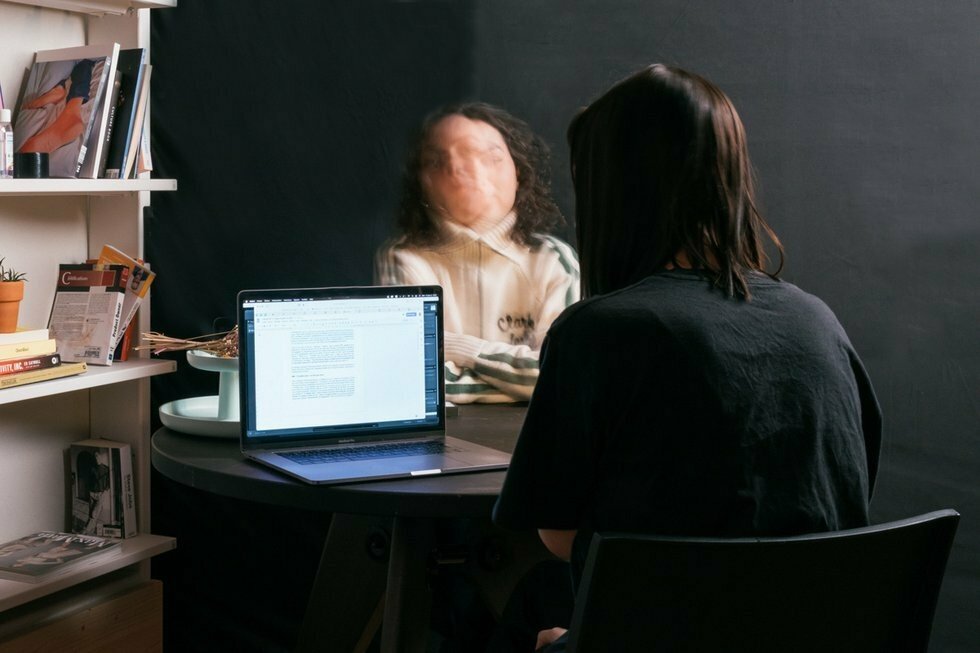

Freelance writer and translator, ex-recruiter
When was the last time you made a quick judgment about someone? We do it all the time. How people speak, dress, behave, and even smell creates an instant picture in our minds. A Princeton University study showed that we make judgments about others in as little as a tenth of a second and that once those first judgments are made, it’s pretty hard to reverse them. It should come as no surprise then, that if you’re interviewing for a job at any level, you need to know how to make a good first impression.
Executive Coach and Communications Advisor Lindy Amos has spent years helping people to communicate across industries and countries alike. She shares her tips on how to make a good first impression at a job interview—or in any other environment for that matter._## Why are first impressions so important?
Why are first impressions so important?
In the first instance, Amos explains that it helps to understand how first impressions form people’s opinions about us. The reason our judgments are made so quickly is due to a cognitive bias called the Halo Effect. In layman’s terms, she describes this as the way our minds work. “When we meet someone for the first time, we create a sort of template in our brains of what will follow. All of the information we receive after that is attached in our brains to the template we already created,” she explains. So, when we perceive positive qualities from someone it leads to a more positive template, and then as we receive further information, we take that on board in a more positive light, we might even draw more positive conclusions from inferences.
What’s the #1 secret to making a good first impression at a job interview?
According to Amos, the simplest, most important way to make a good impression at a job interview is to shift the frame from the self to the other person. “Be more interested in others and they’ll perceive you as more interesting,” she shares. This isn’t an excuse to turn up to an interview without preparing what you want to share about yourself, but it’s a reminder that an interview is a conversation. Amos explains, “If we think the spotlight is on us and we’re focused on trying to impress the interviewer, then it becomes a monologue. What you’re looking for is a dialogue, a two-way conversation that leads to a connection. The connection is the important part.”
How do you make that happen?
Creating a good first impression at a job interview is a skill you can learn. Amos explains that all it requires is intentional, purposeful practice. “It’s all about putting in the reps. This isn’t a one-and-done scenario,” she says. You have to keep working to make authentic and effective connections, be that in the workplace or during an interview. Making a good impression is something you’ll need to do often, so dedicate the time to get it right. There are three main components to this practice:
- Prepare
- Keep calm
- Put the focus on your interviewer
Prepare
- Know what you want to share with your interviewer, but not word for word. Be able to say who you are and what you’re looking for in two to three pithy sentences. Your version of an elevator pitch. Have an overarching story with a core message that’s based on your professional history and what you’ve achieved to date. First impressions require great introductions.
- Have three stories on hand. Use examples of when you’ve done something that has had an impact or contributed to something that matches what the recruiter is looking for. If nothing springs to mind naturally, Amos recommends doing a self-audit. “Make a list of contributions you’ve made over the course of your professional career and then the impact of those contributions.” As you write, you’ll see themes emerge and this can help you develop both your overarching message and your story.
- Make a list of questions that you’re authentically curious about. Do your due diligence, find out about the company, check out your interviewer on LinkedIn, and find something compelling to ask them. Pick something you’re genuinely interested in so there are follow-up questions to ask. Amos explains that by using compelling questions you create dialogue and in turn, forge a greater connection with your interviewer. You’ll always create a good first impression by putting the other person first and being curious about them.
- Plan the right look. Dress appropriately for the interview you’re attending. If your interview is remote, then Amos says there’s even more planning to do. To make a great first impression in a remote interview, she recommends you view your set-up as a piece of theatre. You’re not only a key member of the cast, but you’re also the set designer, technical advisor, and costume department rolled into one. In addition to your costume, you need to:
- Make sure you have a light behind your camera.
- Set the scene. Your background should be simple and uncluttered. Using a filter isn’t great for authenticity so avoid it if you can. Find a blank wall—no one will know if your screen is propped on a stack of books!
- Organize a technical rehearsal. Is your camera good enough? How’s your sound?
- Do a dress rehearsal. Make sure your eye level is two-thirds of the way down the screen.
- Be sure to look into the camera. Resist the urge to primp, fix your hair, etc. (minimize your image on the screen to make it less distracting).
Keep calm
Fritz Perls, the founder of Gestalt Therapy famously said, “Fear is excitement without the breath.”
With this in mind, Amos explains that a few nerves aren’t always a bad thing. If you’re passionate about the position you’re applying for, then it’s natural you might be a little nervous. Amos reminds job hunters not to beat themselves up about it, “I think of nerves as energy that has no place to go, so give that energy a place to go and focus on your breathing.” Telling yourself not to be nervous won’t work, instead, tell your body what to do. Work on your breathing while you’re waiting for the interview to start, and if you can exhale for longer than you inhale then it will help to calm you down. Buy yourself time with some small talk, breathe, and let that excitement show through.
Put the focus on your interviewer
Circling back to her top tip, Amos tells us that the biggest error people make when going into an interview is forgetting that it’s a conversation. “The interviewer is rooting for you to be successful. They want to hire someone for the role, they want the interview to be a valuable use of their time, they’re looking for a positive outcome.” Your interviewer already knows from your resume that you have the professional competencies they’re looking for. If you want to make a good first impression at a job interview, show them your passion and commitment, your ability to get along with others, and how you might fit into their team or organization. Be open to the conversation.
Help the hiring manager to do their job. Articulate your value add, but above all, focus on the connection. Amos says you should start as soon as you go into the interview room or reception area. Look around you for inspiration—is there an interesting piece of art on the wall? Do they have a great view? Express genuine curiosity about your surroundings, tell them you like something, or ask to know more about it. When it comes to making a great first impression at a job interview, those first five minutes are golden. “Breathe, smile, make eye contact, and lean into the conversation.”
Photo: Welcome to the Jungle
Follow Welcome to the Jungle on Facebook, LinkedIn, and Instagram, and subscribe to our newsletter to get our latest articles every day!

More inspiration: Ace your job interview
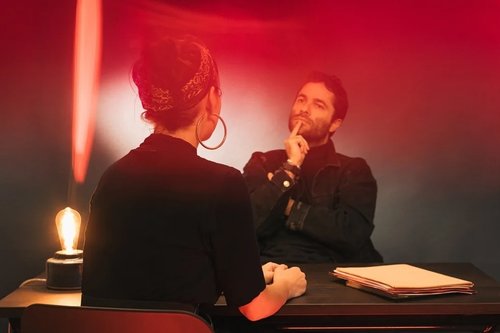
Why are you leaving your job? Here's how to nail the answer
Caught off guard by 'Why are you leaving your job?' Here's how to flip this tricky question into a spotlight on your goals and potential.
Dec 24, 2024

Standing out in an interview: Creative responses to common questions
Answering common interviews with common responses isn't going to get you far in today's job market. Here's how to truly stand out!
Nov 26, 2024
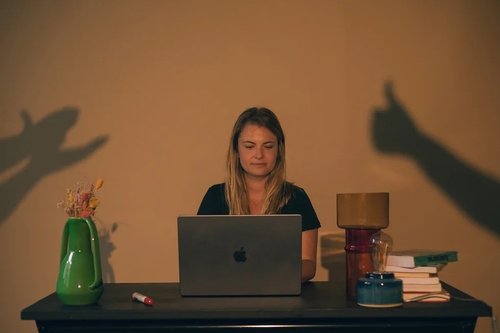
The Pratfall Effect: Can screwing up in a job interview make you more likable?
Mistakes you make in a job interview could actually work to your advantage ...
Oct 14, 2024
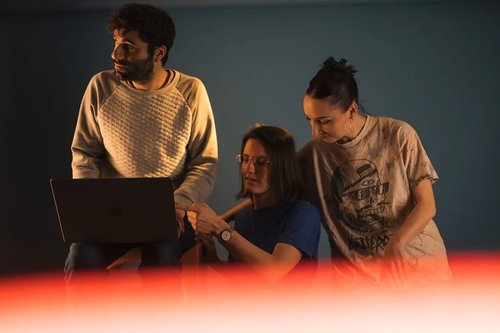
How to bring up your long-term career goals in an interview
Be honest but strategic. The key is aligning your goals with the role while showing flexibility and ambition. Avoid faking it!
Sep 24, 2024
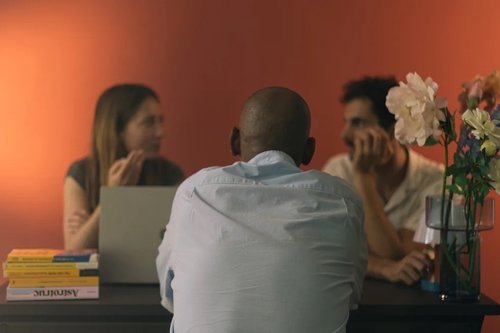
Is honesty the key to discussing your weaknesses?
Are your weaknesses holding you back in an interview? A bit of honesty can flip the script and make your flaws work in your favor.
Aug 21, 2024
The newsletter that does the job
Want to keep up with the latest articles? Twice a week you can receive stories, jobs, and tips in your inbox.

Looking for your next job?
Over 200,000 people have found a job with Welcome to the Jungle.
Explore jobs